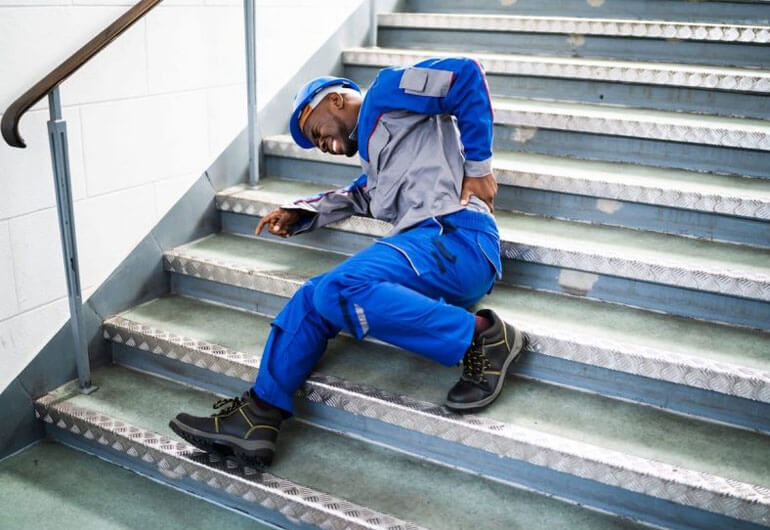We provide full family medical care for most medical conditions: Personal Injury, Workers Comp, Medical Malpractice, No- fault, Trust & Estates, Construction accidents.
Contact us
"Slip and fall" is a term used for a personal injury case in which a person slips or trips and is injured on someone else's property. These cases usually fall under the broader category of cases known as "premises liability" claims. Slip and fall accidents usually occur on property (or "premises") owned or maintained by someone else, and the property owner may be held legally responsible. There are many dangerous conditions like torn carpeting, changes in flooring, poor lighting, narrow stairs, or a wet floor can cause someone to slip and be injured. Same goes if someone trips on a broken or cracked public sidewalks, or falls down a flight of stairs. In addition, a slip and fall case might arise when someone slips or falls outdoors because of rain, ice, snow or a hidden hazard, such as a pothole in the ground. In any event, the plaintiff must have sustained some kind of injury, however minor, in order to collect. There is no precise way to determine when someone else is legally responsible for your injuries if you slip or trip. Each case turns on whether the property owner acted carefully so that slipping or tripping was not likely to happen, and whether you were careless in not seeing or avoiding the condition that caused your fall. Here are some general rules to help you decide whether someone else was at fault for your slip or trip and fall injury. In most cases, a person injured in a slip and fall on someone else's property must prove that the cause of the accident was a "dangerous condition" and that the owner or possessor of the property knew of the dangerous condition. A dangerous condition must present an unreasonable risk to a person on the property, and it must have been a condition that the injured party should not have anticipated under the circumstances. This latter requirement implies that people must be aware of, and avoid, obvious dangers.